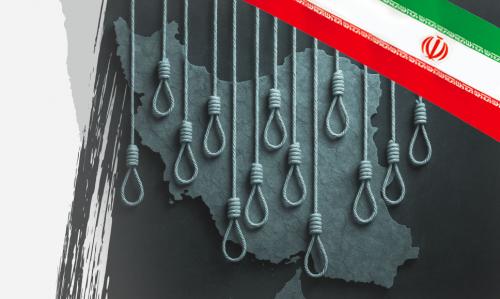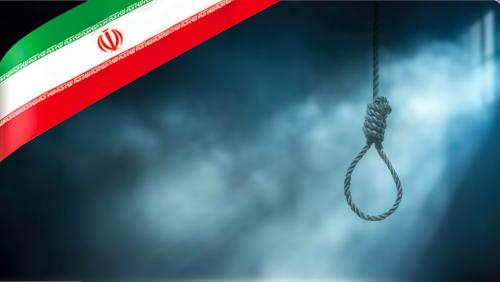01 January 1999 :
This is the fourth consecutive year that Hands off Cain is publishing its report on the death penalty. The events registered in 2000 reveal a positive trend towards abolition.As of 31/12/2000, there were 123 abolitionist countries of various types: 77 were fully abolitionist, 12 were abolitionist for ordinary crimes, 30 were de facto abolitionist (they haven´t carried out a death sentence in at least ten years), 2 were engaged in abolishing the death penalty as members of the Council of Europe, 2 had a legal moratoria on executions. Seventy three states retained the death penalty.
The increase in abolitionist countries in the last year is due to Ivory Coast, Ukraine and Bermuda, which abolished the death penalty completely, and Antigua and Barbuda which became a member of the de facto abolitionist group of countries, not having executed anyone in the last decade. Moreover Malta became a totally abolitionist country having abolished capital punishment for military crimes.
To counter this positive news there are some alarming statistics from 27 countries, that in 2000 executed at least 1,892 people. China confirmed itself as the number one executioner in the world with at least 1,000 capital executions in 2000. Moreover, executions in Iraq, which are usually carried out after summary trials without due process of law, were at least 400 according to Iraqi authorities and the independent press, without taking into account the 2,000 executions reported by the opposition; in Iran there were at least 153 executions; 121 public beheadings were carried out in Saudi Arabia; and the United States executed 85 people. Amongst the ten countries which carried out the most executions were Afghanistan with at least 30; the Democratic Republic of Congo with 20; Pakistan with 17; Liberia with 14; Jordan with 8 executions. The death penalty was also implemented in the following countries: the Bahamas, Belarus, Burundi, Cuba, Egypt, Guatemala, Japan, Kazakhstan, Kuwait, Liberia, Libya, Malaysia, the Philippines, Qatar, Singapore, Somalia, Thailand, Taiwan and Yemen.
The figures are only estimates, except for Saudi Arabia and the United States, as many countries are secretive about their activities regarding the death penalty so as not to incur international criticism.
United Nations
The United Nations continued to affirm that the abolishment of the death penalty contributed to the progression of human rights.
Due to a motion from Portugal, which held the European Presidency at the time, on April 26th 2000 the UN Commission of Human Rights approved a resolution for a moratorium on executions with a view to its total abolition for the fourth year running.
Europe
No executions were carried out during the year 2000 in Europe, a continent now free of the death penalty with the exception of Belarus which was suspended in 1997 from the Parliamentary Assembly of the Council of Europe for reasons including its stance on the death penalty.
There were, however, movements in the abolitionist direction also in Europe.
Malta became a totally abolitionist country when it decided to abolish capital punishment for military crimes. Ukraine also completely abolished the death penalty. Bosnia, Lithuania and Poland signed the Second Optional Protocol to the International Covenant on Civil and Political Rights (aiming at the abolition of the death penalty). There was also a strengthening of the regional abolitionist movement with the signing of the 6th Protocol to the European Convention for the Protection of Human Rights and Fundamental Freedoms on behalf of Albania, Poland and Ukraine.
Russia is applying a moratorium on executions, however in the segregated Muslim region of Chechnya, where fighting between rebels and Russian troops continues to this day, the Chechen courts which apply Sharia law publicly announced via internet their second death sentence for Vladimir Putin within the space of a week. The document, which was signed by Shamil Basayev, stated that "He who executes the verdict will deserve the mercy of Allah". As well as the mercy of Allah two and a half million dollars were also promised to those who carried out the execution.
The commander of Russia´s North Caucasus Military District General Gennady Troshev countered this call by declaring that life imprisonment is too mild a punishment for Chechen terrorists who have killed dozens of civilians.
"I would hang them on squares and leave them like that for everybody to see," he said. His declaration was met by a chorus of condemnations from the Russian authorities. Presidential aide Sergei Yastrzhembsky said activities incompatible with Russian legislation will not be carried out in order to achieve the goals of the anti-terrorist operation in Chechnya. "Public executions or summary killing are out of the question," he said.
With the "Colosseum illuminates life" campaign in Italy, the ancient monument which symbolises Rome became a ´witness´ to the global initiative against the death penalty. The year 2000 saw the Colosseum illuminated 16 times, either because abolitionist laws had been introduced by Parliaments or because death sentences had been commuted.
The Americas
The American continent is, with a few exceptions, that freest of the death penalty after Europe.
The year 2000 saw 85 executions carried out in the United States, 13 less than the previous year. Of the 85 executions 40 were carried out by the State of Texas, which by the 31st December 2000 had executed 239 people out of a total 683 put to death in the country since the Supreme Court re-introduced the death penalty in 1976. Texas alone is responsible for a number of executions nearly equal that of all the other states put together. The now President of the United States George W. Bush also holds a record, that of having ultimately sent to death 152 condemned prisoners during his six years as Governor of Texas.
Ninety five people have been freed from death row since 1973 because proved innocent. During the year 2000, 14 states introduced bills either for the abolition or for a moratorium on the death penalty due to the high number of judicial errors. Similar proposals were also put forward by both Congress and the American Senate.
The main event of the year regarding the death penalty in America was the introduction of a moratorium on executions by the Governor of Illinois George Ryan on January 31st on the basis that 13 prisoners had been released from the state´s death row since 1977.
In the Caribbean the hangman´s noose which hadn´t been in use for many years was once again propelled into the limelight. David Mitchell, 27, was hanged at Fox Hill prison in the capital city Nassau. When he was executed he had an appeal pending at the Inter-American Commission for Human Rights, which claimed his rights had been abused.
The President for the Cuban Commission for Human Rights and National Reconciliation, Elizardo Sanchez, announced in August that Cuba was amongst the countries that executed their prisoners most frequently. In relation to its population Cuba executes twice as frequently as China, and five times more than the United States.
In Guatemala, on the 29th June, two criminals were put to death by lethal injection in Pavon prison. Their executions were broadcast live on national television.
Countering these tendencies were two positive developments: the law signed the 7th January by the Governor Thorold Mansfield to abolish whipping and the death penalty in the British colony of Bermuda, and the abolishment of the death penalty in Chile.
Asia
Asia in the year 2000 confirmed itself once again as the continent in which most of the world´s death sentences are carried out. In many cases the death penalty is applied according to Sharia law and imposed for non violent crimes or for crimes of little significance.
The record for executions in the year 2000 was held once again by China with over 1,000 death sentences carried out for such crimes as corruption, economic and financial crimes, prostitution, drugs, religious beliefs and expression of dissent, as well as a host of other non violent crimes. The application of the death penalty in these terms goes against the International Covenant on Civil and Political Rights, that China signed in 1998, which works towards confining the use of the death penalty to only the most serious offences. On October 16th, 2000, the Central Commission of Political Science and Law of the Chinese Communist Party announced that from early September to October 15, 2000 the political science and law departments nationwide pronounced judgment on 158,500 criminal and economic offenders, including 515 who were given the death penalty and executed in accordance with the law. This year five hundred people were put to death in China during April alone.
In Iran, according to UN sources there were 153 executions, of which 130 were carried out between January and July 2000. Hussein Abedini, member of the Commission for Foreign Affairs, declared that the Iranian clergy is responsible for approximately 120,000 public and secret executions since 1978 and that around 700 people had been executed since the beginning of 1999. Executions usually take place in public and are preceded by numerous whippings. On January 14th Jasem Ebrahimi, 17, was executed for molesting an 18 month old child.
There were at least 401 executions this year in Iraq (79 according to Iraqi sources, 322 according to independent sources) without taking into consideration the 2,118 executions reported by opposition sources. In December, captain Khalid Sachit Al-Janabi, a former officer of the secret police, stated he´d taken part in the massacre, ordered by Saddam Hussein, of 2,000 dissidents at the Abu Ghraib prison in one day. Human Rights activists also declared that Saddam Hussein had ordered the beheading of tens of men and women suspected of being linked to prostitution rings. At least 100 people were said to be executed with the heads of some of the victims placed in front of the doors of their own residences.
The number of executions in Saudi Arabia rose to new heights surpassing the 99 executions in 1999 with 121 in the year 2000. Sixty five of those executed were foreigners.
In Afghanistan, there were at least 30 public executions. According to strict Islamic laws implemented by the Taleban majority it is up to the relatives of the victim to execute the condemned. In February a boy of 10 was given the task of executing the man convicted of murdering his father. The execution took place in a football stadium in front of thousands of calm spectators including the mother of the child, his sister and his brother of six. The boy, whose duty it was to execute the condemned being the eldest male member of the family, was helped by a Taleban soldier who held the rifle, aimed towards the back of the convict and helped him fire three shots.
Public executions are frequent in North Korea despite denials by the authorities. Between 1995 and 1999 there were approximately 800 such executions, which usually occur following summary trials or trials by kangaroo courts. It is often members of the local police force that carry out the trials and sentence to death. After executions, the police usually encourage the crowd to throw stones at the corpse, in order to express their hate towards criminals. Simple acts of prayer can lead to life imprisonment or a death sentence. A German report released in February 2000 stated that Christian missionaries in North Korea had been publicly stoned to death.
In Yemen Mohammed Thabit al-Sumi was stoned to death in January 2000 for having raped and murdered his twelve year old daughter. He was buried up to his waist whilst hundreds of people, including women, threw stones at him. It took him four hours to die in what was the first execution by stoning in modern Yemeni history.
In the United Arab Emirates on February 1st 2000 a new environmental law came into effect, mandating the death penalty for crimes regarding the disposal of nuclear waste.
However there is news positive changes also in Asia.
In South Korea, in February 2000, a group of 92 lawmakers presented a Bill asking that all death sentences be commuted to life imprisonment.
In the Philippines, on March 24th 2000, the then President Estrada declared a moratorium of 11 months in occasion of the Christian Jubilee celebrations. On 10th December 2000, World Human Rights Day, President Estrada, whose position was under threat by charges of corruption, ordered the commutation into life terms of all death sentences confirmed by the Supreme Court.
In Kyrgyzstan, on December 4th 2000, President Askar Akayev signed a decree extending by a year the two year moratorium already in force in the country.
In Pakistan, on July 1st 2000, President Rafiq Tarar put into practice a new judicial system that abolished the death penalty for those under the age of 18. Around fifty minors on death row benefited from the new law, including a fourteen year old who had been condemned to death. Pakistan still strictly applies Sharia law. In August, a man of 60, Mohammad Yousuf Ali, was sentenced to death after declaring himself a prophet of Allah.
In Samoa, in August 2000, the Chamber of Deputies approved a law abolishing the death penalty. If approved by the Senate the law would also abolish the possibility of parole for those sentenced to life imprisonment for first degree murder.
Africa
The continent of Africa has the highest number of de facto abolitionist countries. However it is also the place where there is a high possibility that executions may resume, especially following a coup or a civil war.
In the Democratic Republic of Congo there is presently a moratorium on executions for ordinary crimes whilst Parliament debates on whether to abolish the death penalty, which is still applicable for military crimes. In fact, on 15th January 2000, a 14 year old soldier was executed only 30 minutes after his trial.
There was also positive news from Africa this year.
In July 2000, the Ivory Coast approved a new Constitution which provides for the abolishment of the death penalty after a national referendum was approved with 86.53% of all votes cast.
On 4th of January 2000, the Nigerian President, Olusegun Obasanjo, gave pardons for humanitarian reasons to all those who had been waiting on death row for a period longer than twenty years.
President Jerry John Rawlings, of Ghana, pardoned approximately 1,000 convicts, including two soldiers condemned to death for subversive activities.
On 13th July 2000, Ugandan President Yoweri Museveni commuted 16 death sentences, reducing 12 to life imprisonment and pardoning another four death row inmates.
Prospects for the future
Positive news for abolitionists could come within the next few months from Africa, in particular from Nigeria and from Zambia; from Asia, namely South Korea and the Philippines; from Lebanon in the Middle East; from central Asian republics such as Kirgyzstan, and even from the United States. In the past year there have been movements towards the abolition towards abolition in these countries from parliamentarians, human rights organisations, religious groups and renowned personalities.
After the Commission for Human Rights approved the resolution for a moratorium on capital executions for the fifth consecutive year, it is widely expected that the European Union will put to a vote a proposal for a universal moratorium at the next UN General Assembly.
In view of this deadline, Hands off Cain sets itself the goal of mobilizing both public opinion and parliamentarians form abolitionist countries. If the 1999 UN initiative failed miserably, it was due to the fact that the European ambassadors could make their decisions without having to answer to public criticism or members of Parliament from their relative countries. Hands off Cain´s campaign schedule for the year 2001 includes a series of missions to European capitals to meet with Parliamentarians and Foreign Ministers. To promote a world wide resolution we have launched the first on-line campaign, together with Oliviero Toscani and Nexta.com, for a moratorium on executions called "Stop the death penalty via Internet". The campaign, launched in March 2001, consists in the collection of online signatures for a world wide appeal to the United Nations. A large number of citizens and websites have already adhered to this initiative, which will culminate in a virtual anti-death penalty demonstration on December 10th, International Human Rights Day.
To join the initiative and sign our appeal log on to the websites www.handsoffcain.org or and www.arte.it/caino.







